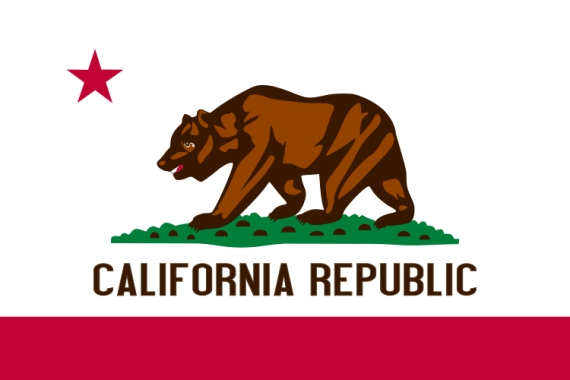CA Controller to Withhold Pay of Legislators over Budget
CA's budget battles continue.
 Via the LAT: California Legislature to forfeit pay, Chiang says
Via the LAT: California Legislature to forfeit pay, Chiang says
State Controller John Chiang has decided to deny California lawmakers their pay for failing to produce a truly balanced spending plan, infuriating legislative leaders but pumping new life into budget negotiations just 10 days before the start of the new fiscal year.
Indignant Democratic lawmakers, having passed a budget on the June 15 deadline without input from Republicans or Gov. Jerry Brown, said the controller, who issues state paychecks, was engaged in an illegal power grab. Chiang said in his announcement Tuesday that aspects of the Democrats’ budget — which Brown had swiftly vetoed — were incomplete and the plan therefore violated a new law that punishes the Legislature for late spending plans.
[…]
Chiang said the forfeiture is required because the budget that Democrats approved spent more — $1.85 billion more, in his analysis — than it collected in taxes and fees.
[…]
Voters passed a law last fall requiring that legislators’ pay be seized for every day that a budget is late. That law, which also enabled lawmakers to pass spending plans with a simple majority vote, does not specify that it be balanced, but Chiang noted that other laws do.
This is interesting for a variety of reasons.
First, the main fireworks are intra-party (the Democratic Governor vetoed a budget passed by Democrats in the legislatures, and the Democratic Controller is the one making the move on pay). There are also inter-party plot threads, of course.
Second, while Chiang has the basis to withhold the pay (and, as per the new law, the legislature cannot retroactively reimburse themselves), the degree to which he can withhold pay to force a balanced budget is more questionable, it would seem.
Third, as to the matter of pay-withholding issue as a tool to improve policy-making: it will be interesting to see the degree to which it actually produces good outcomes. One does wonder as to the degree to which putting severe financial strain on (some*) members of the legislature is the best way to induce good decisions.
Fourth, the following sparked a memory:
Senate President Darrell Steinberg (D-Sacramento) said Chiang’s move set a “terrible precedent” and would throw out of whack the balance of power between the branches of government. Governors and finance officials should not have the power to control the pay of 120 independently elected lawmakers simply because they don’t like what those lawmakers produce, he said.
As a generic proposition, this is not a bad point, as it clearly allows the executive branch to grab the legislature by the small hairs, so to speak. The memory it sparked was Madison in Federalist 51:
It is equally evident, that the members of each department should be as little dependent as possible on those of the others, for the emoluments** annexed to their offices.
Madison was writing in terms of separation of powers, and was concerned with the ability of the legislature to have power over the executive or judicial branches, but the principle is the same. Now, I bring this up not because the Federalist is authoritative here, but rather simply to note that this type of power does raise questions about the balance of power within California’s state government (which does have a system of separation of powers and checks and balances along the lines of the US constitutional order). Of course, the law is the law, and so any debates over its wisdom should have been undertaken last year before the measure passed.
Fifth, there is a suggestion in the article that Chiang has gubernatorial aspirations. As such, he may be someone to watch, politically speaking, in the future.
The ballot initiative under discussion was Proposition 25, which passed last year.
—
*Legislators who are independently wealthy will be fine. Those who are not will be under great pressure.
**From Dictionary.com: “profit, salary, or fees from office or employment; compensation for services”






I would point out that in olden times, when the College of Cardinals was taking too long to select a new Pope, the Chancellor had (and used) the authority to steadily decrease the quality & quantity of food provided to the Cardinals until they agreed. I would additionally point out that this did not stop them from selecting a long string of truly despicable human rejects to be Pontiff.
Actually, the CA law is pretty well-written in this regard [Art IV, Sec 12.h]:
So it wouldn’t matter if the governor signed it. The controller’s argument is that the budget bill passed didn’t meet the Constitutional requirements of Section 12.g, which states:
Whether the controller’s calculations about the budget shortfall are correct (the way to calculate it is held in those ellipses) is another question entirely. But the legislature’s hands are not tied by the governor, they’re tied by recently-passed referenda (presumably 2003 or 2004, based on the language in Section 12.g).
@ptfe:
Thanks for the info.
I think that the Controller is absolutely on safe ground on withholding pay in terms of the lateness of the budget, as per the proposition.
The issue of he balanced budget, however, is trickier, insofar as it is questionable as to whether he has the power to enforce the provision in question.
I think that Chiang is wrong on the merits of the case.
The fact is the legislature did pass a balanced budget and submitted it to the governor. Brown did not like the accounting method the legislature used to reach a balanced budget, thinking it faulty, so he vetoed the budget bill.
In effect the dispute is over an interpretation of an accounting method, not over the inability or lack of will on the part of the legislature to actually pass a constitutionally vetted balanced budget.
In any event, disputes like this are less likely to occur in the future when the California redistricting takes effect. By eliminating gerrymandered districts drawn up when conservatives controlled the process the Democrats should gain enough seats to provide a comfortable two thirds majority over the Republican in the state legislature and increase their margin of congressional seats by another 5 or 6 seats.
@Ken:
That does raise an interesting question, which I suppose could be the basis for a legitimate court challenge: i.e., if the legislators passed a budget, but it is vetoed, does that mean the legislature did its bit under Prop 25 or not?